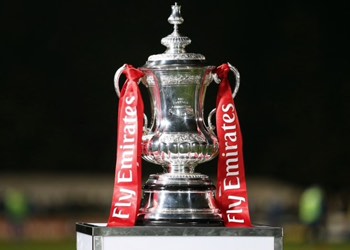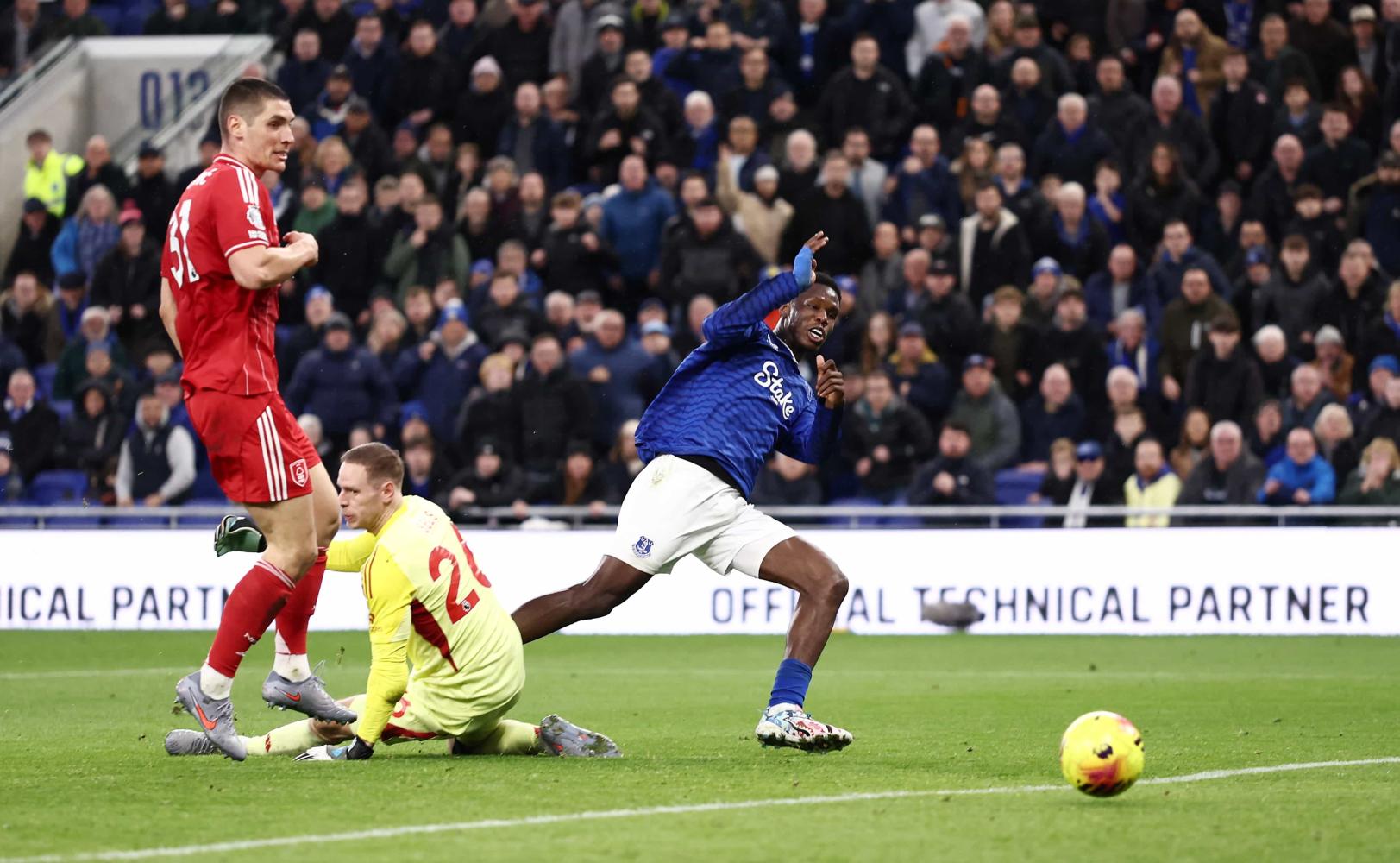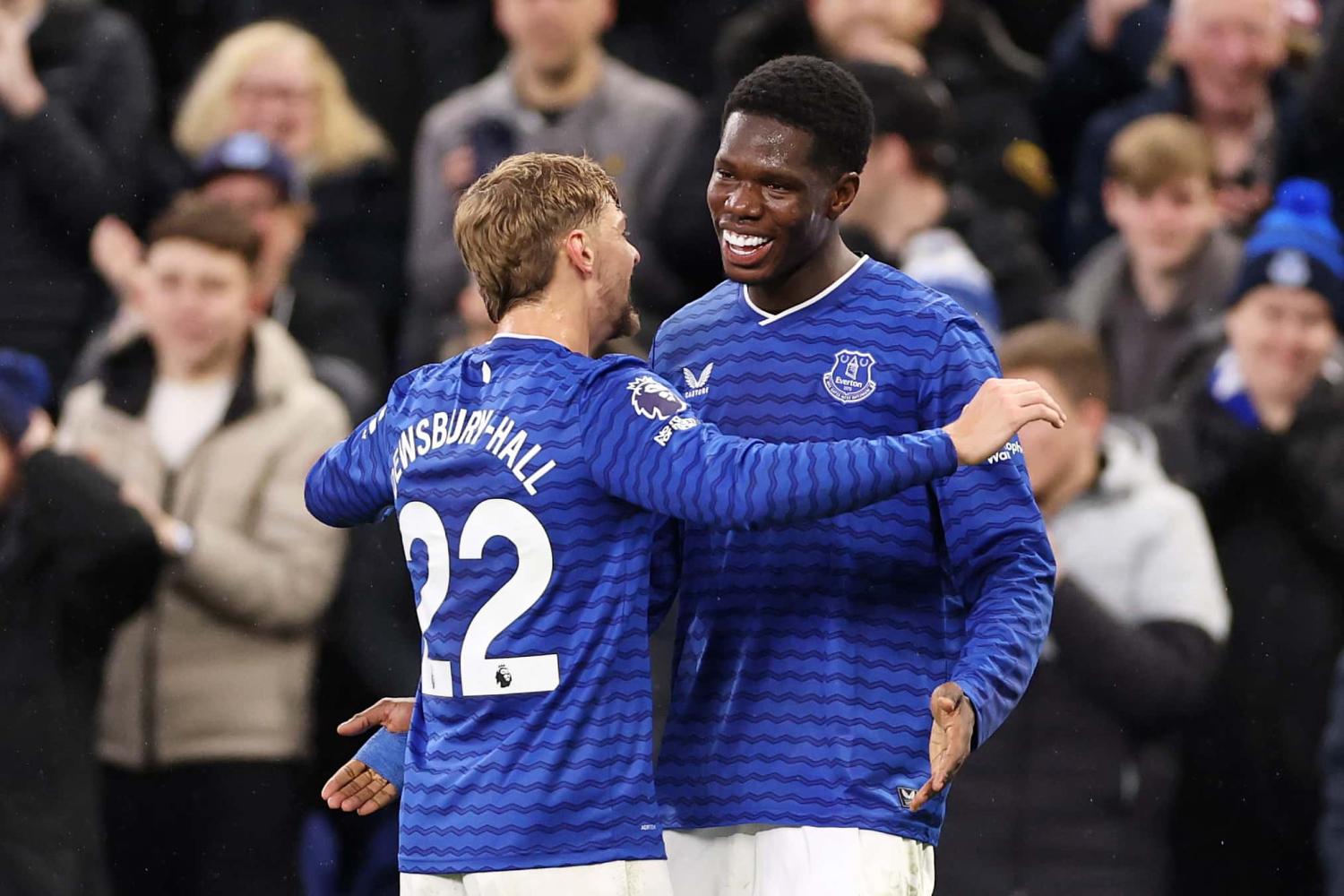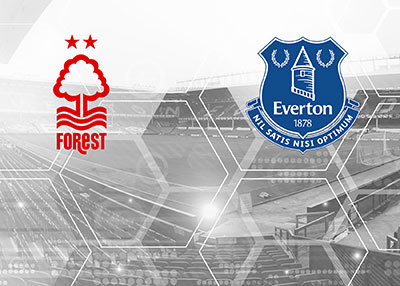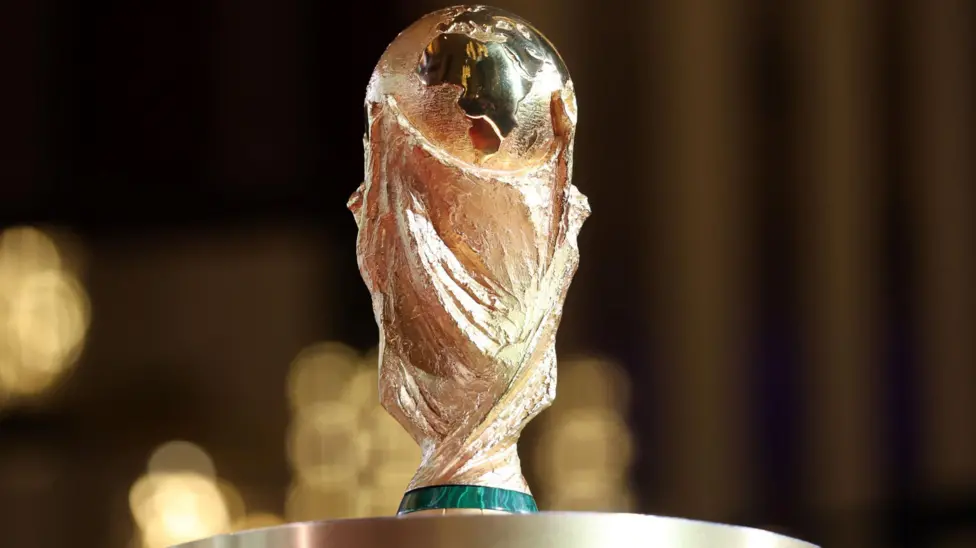FANS COMMENT
Everything under one roof
What have Manchester United, Portsmouth, Chelsea, West Ham, Aston Villa and very soon Liverpool got in common? The obvious answer � they are all owned by foreign investors who have wealth beyond the comprehension of mere mortals like me and you.
The next, perhaps harder question is why have all these very rich men bothered? I mean, what is in it for them? I watched a TV interview last week with Eggert Magnusson, the former chairman of the Icelandic FA, who now �owns� West Ham, and he insisted that he was not in it to make money, as he�d already made his money and was buying West Ham because he loved the game � which kind of begs the question, if you love the game so much why don�t you spend your cash at grass roots level developing Icelandic football?
Actually, according to David Conn (writing in The Guardian 29 Novemeber 06), in keeping with the murky world of football finance, the deal�s principle financial backer is a convicted embezzler called Bjorgolfur Gudmundson who owns 95% of WH Holding, the company he formed to take over the club. Magnusson is in effect just a figurehead and his professed love of the game of football is therefore irrelevant.
The Maktoum family�s prospective acquisition of Liverpool football club through Dubai International Capital is another example of millions of pounds being invested in the �greatest league in the world� and again, according the spiel, the motivation behind the take over is not to make money, as one of the Maktoum team ,Sameer Al Ansari, the chief executive, is said to �have Liverpool�s crest as the wallpaper on his mobile phone� (The Times) and by extension is a fanatical Liverpool supporter. Again, if he is that fanatical a Liverpool supporter, what�s with the financing of the ground of one of Liverpool FC�s rivals (Arsenal and the Emirates) for a Champions League gravy train ticket? Does he not realise that if Liverpool don�t qualify for the Champions League two years on the bounce they will be effectively bankrupt?
So, we are led to believe by all of these latter-day footie philanthropists that making money is not their primary concern; they are busy acquiring Premier League clubs because:
a) They love the game
b) They�ve always fostered a hitherto well hidden love for the club in question
c) They want to add this particular club to their growing collection of sporting �interests� for acquisition�s sake alone.
This is astounding! If we are to believe them, these mega-rich men have all undergone an epiphany of majestic proportions; they�ve collectively abandoned their love of making money and empire building and conspired to plough untold millions into emotionally inspired and potentially loss-making enterprises � all because they love football.
Well, I�m very sorry, lads, but I just don�t buy it � though I do agree that evidence does suggest that making large amounts of money as a club owner in the English game, as it is at the moment, is quite difficult; which leads me to the point of this piece � what are they really up to?
I think I�ve got the answer to this paradox � in fact I think the answer is blindingly obvious to anyone who takes the trouble to work it out; the answer is media convergence.
Without getting too technical, Media Convergence Theory is the idea that different media technologies will inevitably merge into single ubiquitous platform for providing you with broadcast material. Think of the way that you can listen to any tune you want, watch any film you desire, book tickets for the theatre, read any book you feel like, talk to anyone you want � and not leave your PC or use any other technology to sate your desires � everything under one roof.
At the moment, the traditional sporting media works this way: Production � distribution � consumption:
- Production (FA Premier League)
- Distribution (Sky Sports/BBC)
- Consumption (attending the game/subscription)
In the case of the Premier League, broadcasters buy the rights to show games from the FA and, as we all know, currently Sky TV has the lion�s share of these rights to broadcast. Clubs receive a fee based on how many times Sky have covered their games and final league position. The consumer pays either at the stadium turnstiles or the digital turnstile by paying a subscription. The problem with the �digital turnstile� as it exists in its present form, is that you inevitably get an awful lot of games you don�t want. If I�d have invested in a Sky package, I�d have only had the opportunity to watch four Everton games so far this season � and this is a hell of a lot of waste.
As it happens, last season, I watched about 70% of Everton�s games (home and away). I�ve watched them live and, apart from my broadband subscription, it never cost me a single penny. Why? Because just like a lot more of you, I trawled the internet looking for providers who were showing English Premier League games and more often than not I was able to find an outlet showing the blues. The only problem with watching my games this way was the occasional poor quality and I don�t speak Cantonese or Malaysian.
Make no mistake about this, the traditional broadcasting and entertainment organisations are absolutely shitting themselves with the power of the net to take away their market. They are doing their best to incorporate themselves into the net and many large organisations are buying huge lumps of successful net entertainment enterprises. The Murdoch Corporation�s acquisition of MySpace.com is a recent example.
The internet has swallowed up a huge proportion of advertising revenue, once the killing ground of the terrestrial and satellite broadcasting organisations. In fact, it is true to say that all media organisations are at the mercy of the cold wind of changing technology and people are embracing this new technology usually before these megalithic organisations can respond to the change (think: early Napster and YouTube). What does this mean for the future of broadcasting and more specifically the future of football broadcasting?
My argument is that the old model of Production � Distribution � Consumption will very soon no longer be relevant in its present form; specifically, large broadcasting corporations acquiring the rights to distribute a package of games and consumers buying the whole package, whether they want all of the games or not. I�m convinced that, within the next five to ten years, the majority of football will be bought directly from the provider � and consumed via the internet. At this point, think beyond the usual image of a lone male hunched over his PC watching a poor-quality image. I�m thinking more broadcast quality football piped into the front room, or alehouse.
The world giants of the English game (Manchester United, Chelsea, Arsenal & Liverpool) are financially amply rewarded by Sky for their dominance of the Premier League; but when you think about what they could be earning through world wide digital season tickets, carried by internet service providers, their current revenue pales into insignificance. There is huge potential for some clubs to make an absolute financial killing if they forgo the collective bargaining with Sky or the BBC and sell the rights to their games straight to their consumers � either through a digital season ticket or match-by-match purchase � and I believe this is exactly what will happen.
This explains why �unfashionable� Premier League clubs who have little or no chance of winning anything are being snapped up by predatory investors � after all, teams like West Ham, Aston Villa, Manchester City will play Man United, Chelsea, Arsenal & Liverpool each at least twice a season. So, in practical terms, what will this mean for the future direction of the game of football?
This is hard to predict but my guess it will mean:
- Player transfer inflation as the �35M players will become �165M players.
- A smaller FA Premier League (16 clubs)
- A bona fide European Champions League (16-20 clubs) containing the �G-18� with little or no prospect of relegation from this elite
- The further polarization of football to the elite super-clubs and the rest
- A �World Club� competition played every 2 years (were we�ll all become Manchester United supporters when they take on Corinthians or Grampus 8 because they�re an English club (sic)
What will it mean for Everton?
- Players we already cant afford will become even less affordable
- Winning the English Premier League will become even less of a realistic prospect
- We�ll become a �niche club� with a hardcore of dedicated supporters but without the mass appeal of Liverpool, Manchester United, Chelsea and Arsenal.
- To win anything we�ll need to drop a level � we simply won�t be able to compete with the glitterati
However, don�t be discouraged; you�ll probably be able to watch all of Everton�s games live from the comfort of your living room or alehouse, and a substantial part of your subscription will go directly to fund the greater glory of Manchester United, Liverpool, Chelsea, Arsenal � think how good that will feel.
Football as a true competition sport is dead my friends; the FA held football�s arms behind its back as Sky TV raped it, whilst extreme free-market economics hit it over the head with a spade. The future will consist of peddling football�s corpse to the armchair supporters around the globe, who will sit there drinking out of their team�s replica mugs, wearing their club�s replica shirts, watching authentic replica football.
If I have one crumb of comfort to offer: even with the glitterati�s financial foot on our necks, we are still capable of overturning the gravy boat every once in a while � 3-0 against the rich kids of Liverpool � pity that this occasional upset is probably all we have to look forward to in the future.
Everything under one roof, and � if you are under that roof in Bangkok, Washington DC, the Transvaal, or Walton Vale � as long as you pay your subscription, boys, that�s all that matters.
I so hope I�m wrong.
Responses:
I disagree with Kevin's assertion that everything depends on money. It doesn't. You need good management as well.
Take Aston Villa now under Martin O'neil, who is basically using the same players as David O'Leary and it's like watching two different sides. Having been watching football for over 30 years, I have seen numerous clubs over the years trying to buy success, and bringing in expensive, highly paid players. Man Utd tried it in the early eighties under big Ron Atkinson and failed; Leeds tried it in the nineties and failed; Chelsea tried it also in the nineties and failed. Let' have a look at the so called 'big 4':
Chelsea: They have always, until the early nineties, been a very average club in terms of success and fanbase. Now with millions poured in from a Russian billionaire, thy look to be the first team in my own memory to succeed in buying success. No new ground; Averages attendence: 41,000.
Man Utd: They have always been the world's richest club, with massive support, and were successfully mis-managed throughout the seventies and eighties. It is only under the solid management of Alex Ferguson that they have got successful again. Reveloped Old Trafford; average attendence: 75,000.
Arsenal: They have never really been a rich club, but have always been strictly managed, by George Graham in the eighties and early nineties, and lately by Arsene Wenger. They have always bought wisely in the transfer market and successfully brought young players through the ranks. Struggling with consistency just lately and are getting used to playing at their new Emirates stadium. Average attendence: 52,000
Liverpool: In terms of trophies won, Liverpool must come top of the pile, although they haven't won the Premiership yet. Their most recent big trophy was the Champions League in 2004-05. No new stadium; average Attendence: 42,000.
So why are the Big Four called the Big Four ? If you base it on average attendence then the Big Four should be:
- Man Utd
- Newcastle Utd
- Arsenal
- Man City
If you base it on overall success (including pre-Sky) then the Big Four should be:
- Liverpool
- Man Utd
- Arsenal
- Everton
- Chelsea
- Man Utd
- Aston Villa
- Portsmouth
Even if you base the Big Four on relative successs since the advent of the Premier League, only really Man Utd, Chelsea and Arsenal have really figured, with Liverpool pitching in with a Champions League trophy, but no premierships.
In my reckoning, it only really matters what happens on the pitch. Success breeds success. Money or no money, at the end of the day a team is measured by the games it wins. I will be interested to see how Portsmouth & West Ham fair this year, as they have had a cash injection, plus they have a good managers at the helm.
I have a feeling that Alex Ferguson is right about Everton and David Moyes, in that they are in a team-rebuilding phase, with things slowly coming right, and we fickle fans are being a tad over optimistic with Davey and his half-built team. I am also convinced that money by itself, more often than not, will lead to failure rather than success. Good management, more often than not, will eventually lead to success.
Brian Baker, Aldershot
Want to comment on this article? Drop us a line.
"Fans Comment" articles are submitted by outside contributors to ToffeeWeb. The views contained therein may not correspond with those of the site owners. Editorial policy

